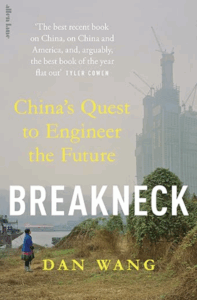The parched meadow

Seen on a cycle ride the other day. It’s beginning to look as though the UK now has only two seasons: wet and dry. There hasn’t been any serious rain for a couple of months — and it shows.
Quote of the Day
“Life is a whim of several billion cells to be you for a while”
- Groucho Marx
Musical alternative to the morning’s radio news
Mozart: Marriage of Figaro | Contessa perdono (‘Countess, forgive me’) | Glyndebourne, 2012
The closing scene of the opera in which the Count begs his long-suffering wife for forgiveness. Opera is a preposterous art form, but when all the moving parts mesh — as in this Glyndebourne performance — it can be wonderful.
Long Read of the Day
Suicide as a bargaining tactic
Really thoughtful essay by Ian Leslie, about a subject I’d never seen discussed before: how suicidal behaviour and “misery signalling” can function as social bargaining tactics, examining a viral case of a young artist’s public declaration of suicidal intent and its broader evolutionary psychological context.
In December last year a young artist called Joseph Awuah-Darko took to Instagram to declare his decision to end his life. He posted a video of himself in tears, followed by an artfully produced video montage of happier moments: Awuah-Darko afloat in a sun-dappled swimming pool; reading a book in a treehouse; standing thoughtfully on a bridge; presenting the camera with an origami bird. In the accompanying text, which began with a quote from Joan Didion, he explained that the burden of existence had become unbearable. He cited depression, struggles with debt, violence in the news, the rise of AI, and his bipolar disorder, which made his lows very painful. He announced that he had moved to the Netherlands to pursue assisted suicide.
This post elicited abundant sympathy. A few days later he posted again, this time to launch “The Last Supper Project”. Awuah-Darko said that while he was navigating the Dutch euthanasia bureaucracy, he wanted some company. He invited his followers to cook him dinner at their home. All you had to do was click on his bio, find a slot in the calendar, and he’d turn up at the appointed hour. “I want to find meaning again with people while I have time still left on earth,” he said.
Thousands took him up on it…
Turns out that this is an older story than we (or certainly I) knew. Suicidal ‘bargaining’ has a long history. Evolutionary psychologists see it as “the bargaining model of depression”.
So many books, so little time
Dan Wang on understanding China (and the US)

I first discovered Dan Wang years ago, when he was a tech analyst living in China. At the end of every year, he published online a long, long letter reflecting on the year just past. I found it fascinating and thought-provoking, not least because it invariably challenged Western conventional wisdom about that vast and mysterious country.
But a few years ago, he moved from China to the US, and his annual letter vanished. And that, I thought, was that.
But now he has produces something wider-ranging but also, I suspect, quite profound — a book about the difference between China and its rival superpower, the US. His basic framing is that China is an engineering state, relentlessly building big, while the United States has transformed into a ’lawyerly society’, stalling every attempt to make change, both good and bad.
Having listened to this podcasted conversation between Wang and Jonathan Schneider, I decided that it was high time I read the new book. So I bought it on Kindle and started to read. I’m finding it quite compelling and nicely written.
You don’t have to take my word for it, though. Brad DeLong — a smarter guy than me — has read it and regards it as a must-read. Here’s an excerpt about it on his blog.
Breakneck sees China as the country of the sledgehammer. Breakneck sees America as the country of the gavel.
China’s technocratic engineering élite solves problems with concrete, steel, and scale—roads, bridges, power plants, hyperscale projects. The impulse extends to society: the one‑child policy and repression in Tibet and Xinjiang. This technocracy prizes order, control, and visible achievement.
America’s lawyer élite solves problems by assigning and vindicating rights to property and security. Enterprise and innovation follow as people live as they wish. The reflex response to any problem is to create another entitlement or right, pulling more people into the set required for agreement and approval.
My commonplace booklet
“One way to think about AI-based text-generation tools like OpenAI’s GPT-3 is as clairvoyants. They are mediums that bring the words of the past into the present in a new arrangement. GPT-3 is not creating text out of nothing, after all. It is drawing on a vast corpus of human expression and, through a quasi-mystical statistical procedure (no one can explain exactly what it is doing), synthesizing all those old words into something new, something intelligible to and requiring interpretation by a living interlocutor. When we talk to GPT-3, we are, in a very real way, communing with the dead.”
Nicholas Carr in ”The medium is the Medium”
This Blog is also available as an email three days a week. If you think that might suit you better, why not subscribe? One email on Mondays, Wednesdays and Fridays delivered to your inbox at 5am UK time. It’s free, and you can always unsubscribe if you conclude your inbox is full enough already!
